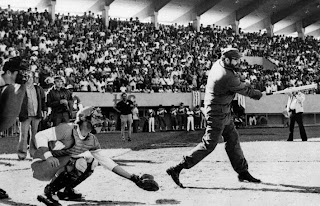One thing, however, is certain: Cuba's status as an international baseball power is history. This month's World Baseball Classic provided overwhelming evidence that Cuba is no longer an elite presence on a baseball diamond. Cuba's failures against Japan and South Korea during the 2009 WBC tournament were not an aberration. This year's elimination at the hands of the Kingdom of the Netherlands, a.k.a. Holland, was proof that Cuba is no longer an automatic finalist in international baseball tournaments.
Gold medalists in the 2004, 1996 and 1992 Olympic Games, and 12-time winners of the Pan American Games -- including 10 consecutive championships between 1971 and 2007 -- Cuba's elimination during the second round of this year's World Baseball Classic came on the heels of a third-place finish at the 2011 Pan American Games and runner-up spot in the 2008 Olympics (baseball was not played during the 2012 games) that sandwiched its 2009 WBC failure.
Different people will cite various reasons for Cuba's demise as an international baseball power. It's true that some of the country's stars have defected from the country, but this year's World Baseball Classic champion the Dominican Republic and other countries, including the United States, can also claim they were missing some of their best players during the WBC. The Kingdom of the Netherlands, with less than half its players affiliated with major league teams, can rightfully claim it had a bunch of second-rate pitchers and only a couple of budding stars on the field when beating the Cubans twice this month.
Cuba has clearly been surpassed by its neighbors the Dominican Republic and Puerto Rico as Caribbean baseball powers and, as demonstrated in other recent international baseball tournaments, by Japan, South Korea, the US, Canada -- and the Kingdom of the Netherlands, with its mix of players from Holland, Curaçao and Aruba -- elsewhere in the world. Time will tell if Cuba's downfall in baseball is part of a cycle that often happens in sports, or an evolutionary or revolutionary change that reflects broader developments in the country.

